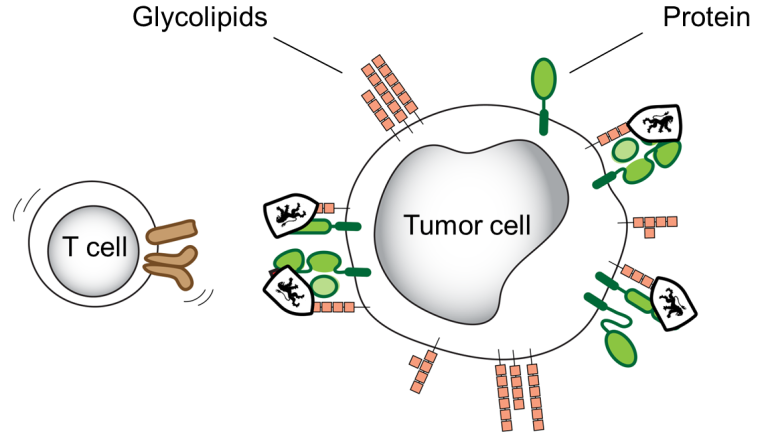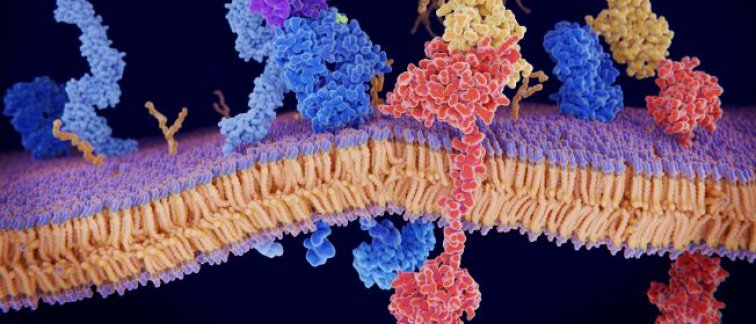Our body cells are covered with many different kinds of glycolipids whose functions are largely unknown. We have discovered that a certain glycolipid subtype (GSL) can influence immune responses. When highly expressed, these molecules can interfere with interactions between tumor and immune cells and, as a consequence, shield tumor cells from surveillance and elimination by T cells. We have also discovered that the protein SPPL3 can reduce production of these glycolipids, and its absence or reduction in some tumor types (such as gliomas) is associated with a decreased patient survival. Several pre-existing drugs currently used to treat hereditary metabolic diseases can inhibit production of GSL, and we show that they indeed improve T cell responses in lab experiments. It is important to further investigate if therapeutic application of these drugs can enhance the immune response against tumor cells in patients.

This work is published in Immunity, December 02 2020 by Robbert Spaapen et al.
Amsterdam UMC people involved:
Marlieke L.M. Jongsma
Antonius A. de Waard
Anastasia Xagara
Tamara Verkerk
Sophie Bliss
Xiangrui Kong
Robbert M. Spaapen

